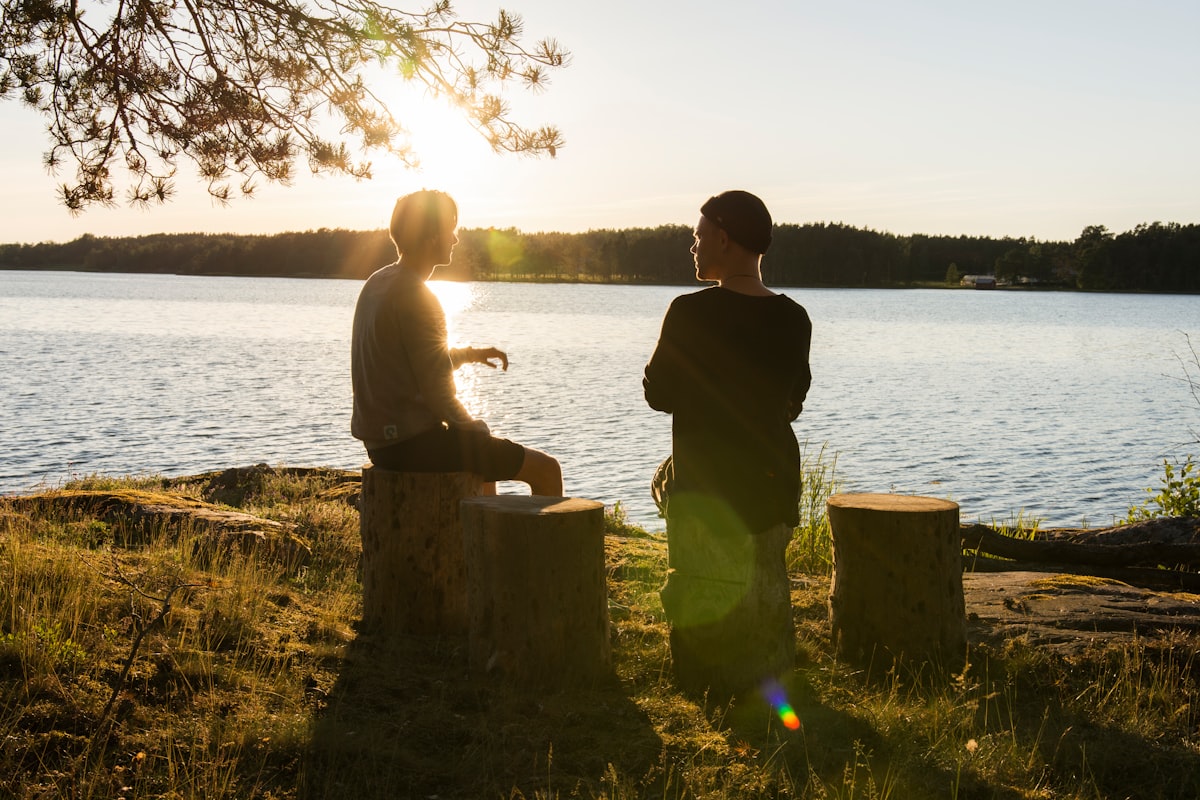📘AIP 62 6 Tips For Smartly Sharing Your Book Insights

I remember at the beginning of my reading journey I had an incredibly embarrassing moment.
I was sitting at a dining hall talking to a friend about the book that re-sparked my love for reading, Atomic Habits.
“It’s so good, you have to read it. It will change your life.”
“What’s it about?” they said.
“Uhhh… Uhm… Right. Habits?”
My face turned a bright tomato red; I had no idea how to smartly share my book insights with my friend. I was frustrated and annoyed. Now, my friend might never check out the book, and they probably thought I was a silly goof.
All of you have likely experienced something similar.
In this newsletter I’m going to share with you 6 tips for smartly sharing your book insights. Hopefully, you never have to experience something like I did again.
📚Tip 1: Give An Analogy Specific To The Person You Are Communicating To
Everything we learn comes from relating something new to something we already know.
That’s why one of the best ways to explain a book to someone is by using an analogy specific to them. Are they interested in computer science, gardening, video games, or something else?
Use an analogy specific to them, and they will understand it way better.
🗺️Tip 2: Summarize What The Book Is About As A Whole
One of the biggest mistakes I see people make communicating book insights is going WAY too specific.
My mom does this all the time. She starts summarizing a book but gives no broad-level overview of the book. She just hops right into something that interested her. As a result, I’m left confused what the book is even about.
So before communicating your book insights ask yourself, what is the book about as a whole?
📝Tip 3: Refer To Your Book Notes
Ideally, you could speak on a book using your first brain.
However, if you can’t remember what the book is about, you can refer to your book notes or a book summary. These will serve as cues for sparking the book back into memory.
🧬Tip 4: Relate The Book To Your Own Life
Humans are storytelling creatures.
If you can find a way to relate the book to your own life, ideally through a story, it will make the conversation that much more personal. You can also explain how you have applied the book.
This allows your friend to ask follow-up questions using their knowledge of your life rather than just the book.
🔗Tip 5: Relate The Book To Other Books
One of the most powerful ways to sound more articulate is simply to connect insights from one book to another.
This shows critical thinking skills. Your friend will automatically assume you know what you are talking about.
🦸Tip 6: Show Confidence Even If You Don’t Feel Like It
The same processes in the body are activated when we feel nervous versus when we feel excited.
Our sympathetic nervous system is turned on. Our palms start to sweat. Our heart beats faster. Our digestion slows.
This has a fascinating implication: our interpretation of autonomic arousal can change the emotions we feel from something.
This means when we are communicating our book insights we can be helped by faking confidence until we make it. Interpreting our nervousness as excitement can actually turn it into excitement.
Using these 6 tips I have managed to avoid the embarrassment of having nothing to say after someone asks me about a book I read again.
If you found learning about how to apply your book insights helpful, you should sign up for the waitlist of the new video course I’m building: The Art Of Linked Reading.
The video course will help people who struggle to understand, connect, remember, apply, and intelligently communicate insights from non-fiction books learn to do so with linked notetaking apps like Obsidian, Tana, Logseq, and more.
Here’s what I would like to share this week.
📸News From The Channel!
📺Latest On De YouTube - Create Your Best Life With Regular Reviews In Obsidian: In this video, I will teach you how I do daily, weekly, monthly, quarterly, and yearly reviews in Obsidian to create my best life. This regular reflection and planning is the single highest leverage ritual I have ever instilled in my life to benefit my health, work, and relationships.
🎙️Latest On De Podcast - E32 Ramses Oudt: How To Learn Effectively Outside The Classroom: Ramses is a lifelong learner and knowledge enthusiast. Formerly an educator, Ramses has harnessed the power of rapid learning and adaptability to navigate two significant career transitions over his 8-year journey - from teacher to marketer to community manager. Now, he writes about learning, teaching, Stoicism, and finding your online tribe as well as PKM in Logseq.
In this podcast you will learn: - How to break a skill into it’s parts and learn them - Why most school learning and online courses are designed poorly - The importance of prioritizing mindset and methods over tools in PKM
✍️Latest On De Blog - 5 Great Lessons From BEHAVE By Dr. Sapolsky: Behavior is WAY more complicated then you think it is. Any given behavior occurs from a mixture of neural, hormonal, genetic, and environmental factors. Here are 5 lessons I took away from Behave by Robert Sapolsky that dives into this deeper.
💡My Best Insights:
P.S. Some of the links below are Amazon affiliate links.
📖Book - Design for How People Learn: After reading How People Learn I needed to explore more into the learning design space. The main thing I took away from this book is the importance of identifying the gaps your learners have in making a transformation. Most educators assume the gap is always knowledge. But the book identifies four other important gaps. Skills, motivation/attitude, habits, and environment. I think anyone interested in learning design, learning, or becoming a better learner themselves through identifying good learning design from bad should read this book.
🎙️Podcast - Ep. 274 — the Deep Life Stack V2.0: Cal Newport’s Deep life stack 2.0 is a progression of goals meant to transition you from a unenlightened knowledge worker to a digital self-actualize one. The founding principle that differentiates it from the Deep Life Stack 1.0 is it requires you to become capable BEFORE you create a vision for your future. This is because Cal believes you to create a vision you must first know what you are capable of doing. If you create a vision before building capability, not only will you not have confidence in yourself but you won’t know what you want.
📺YouTube Video - From Page to Stage EP1 - Acting Essentials - Strasberg, Sense Memory, Actions, Tactics, + More: A podcast conversation with my brother and his friend Ismah summarizing the most valuable things they have learned in acting school. I’m not an actor, but I still got tremendous value from this conversation in learning like how to adopt a childlike curiosity of the world, how to deepen your understanding of your emotions, and how to understand other people better.
